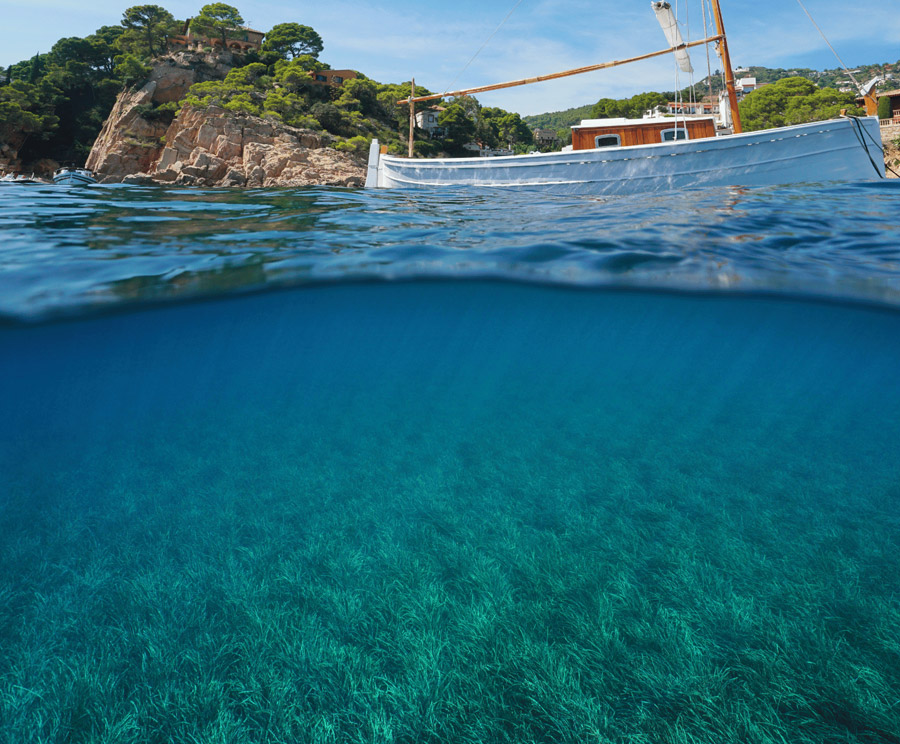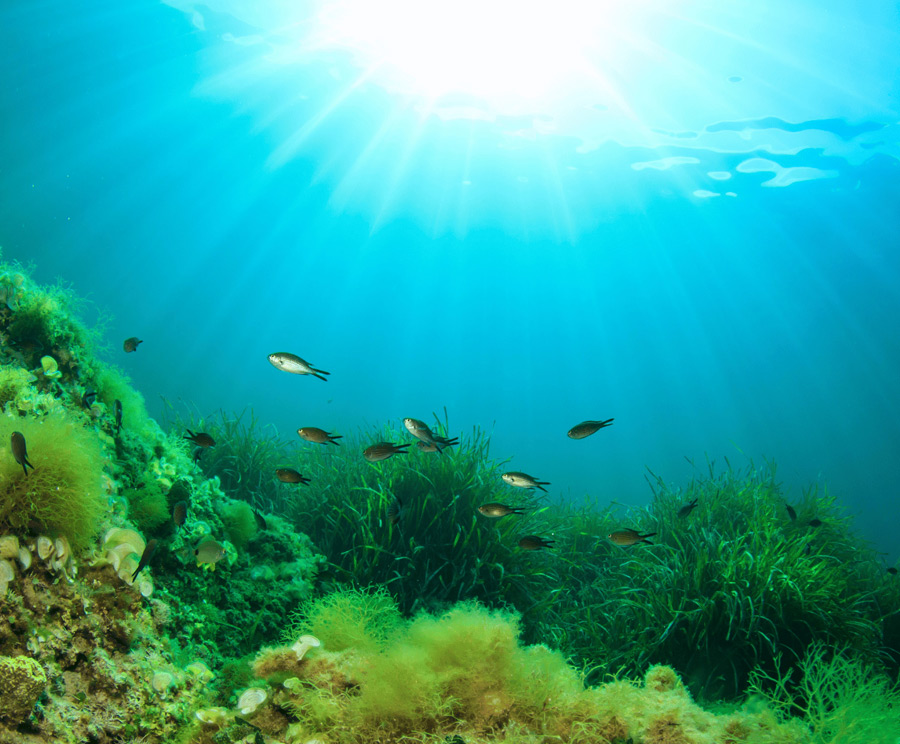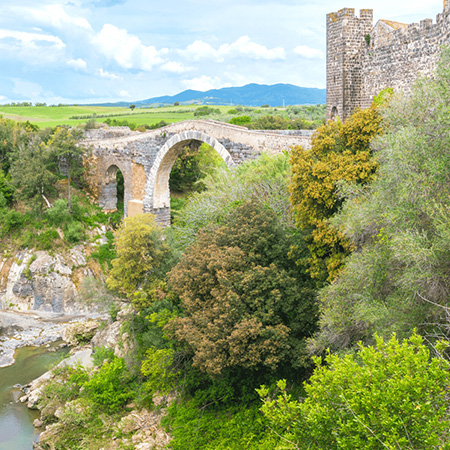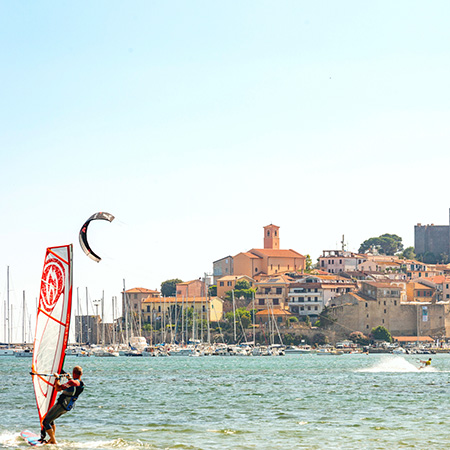Posidonia oceanica
Posidonia oceanica, also known as ‘sea grass‘, is a marine plant that grows on the seabed of the Mediterranean and other warm, temperate seas, including Talamone Bay.
It is the world’s largest and oldest organism, around 100,000 years old, and plays a key role in the health and biodiversity of our waters.
At least 1% of the Mediterranean seabed is occupied by its meadows, which produce around 20 litres of oxygen per square metre every day, benefiting the coastal ecosystem. Posidonia oceanica, in fact, acts as a sort of marine ‘lung’, absorbing carbon dioxide from the water and releasing oxygen; in this way, it maintains the chemical balance of the sea. It is also an ideal habitat for many species of fish and invertebrates, which live and reproduce among its leaves, and a defence of the seabed against erosion and tides.

Just like other marine species, at the end of February they start to grow thanks to rising water temperatures and the availability of food. For this reason, on 21 February, one month after the Spring Equinox, we celebrate ‘spring at sea‘ in Maremma.
Fishing enthusiasts can admire a spectacular underwater ecosystem in the crystal-clear sea of Talamone, characterised above all by the presence of these ancient Posidonia plants






